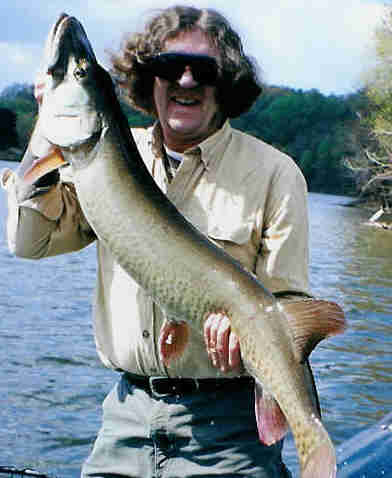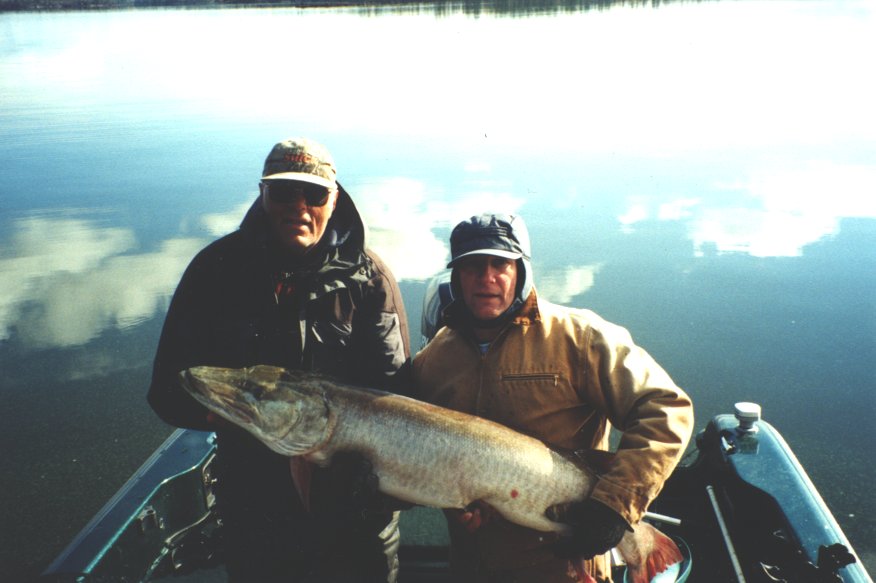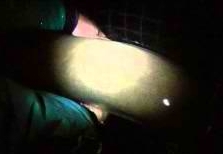|
|

Location: Athens, Ohio | I've seen some debates between rattles and no rattles in and on baits.
Rumor has it that our SiteDaddy, Sworrall, at one time had a presentation on underwater noise.
Can you please share some of your insights, Steve? (or, maybe direct me to an archive on the subject?)
What sounds seem to trigger the feeding instincts of muskies? thanks, m
| |
| | |

Posts: 20278
Location: oswego, il | Mikie, I am no expert but I prefer vibration over rattles. I have done better trolling murky lakes with flat sided baits that thump hard over rounder sided baits and the flat sided ones were wood with no rattles. On pressured waters, I noticed baits with no rattles worked better. This may or may not be true in all cases but it worked for us. | |
| | |
Posts: 4
Location: Davenport, IA / Watersmeet, MI | I have heard that with increased fishing pressure, muskies are becomming weary of the noises made by the common loud baits. And that you should alter the sound of the bate in some way that makes it unique. | |
| | |

Posts: 906
Location: Warroad, Mn | I suspect that no one really knows!
Doug Johnson | |
| | |

Posts: 32955
Location: Rhinelander, Wisconsin | Doug's right. I did record about 100 baits on tape, and look into anything I could find that might indicate a sound signature that the fish seemed to like. I found nothing conclusive, but some correlations that are 'interesting'. Example:
I had three Tallywackers recorded, two which caught fish, and one that didn't. The two that did both had a good and identical metal on metal sound, the one that didn't didn't. What does that prove? Nothing, unfortunately. | |
| | |
Posts: 15
Location: Scranton Pa. | From what I gathered in my fish physiology searches,{always trying to get an edge} I've read science that says low frequency vibrations are picked up on the fish's lateral line. A distressed forage fish, in a panic mode or injured, is supposed to put out low frequency vibrations as it dies or stresses, and fish can use their latteral lines to zero in on them.
Sworrall, have you ever tried to capture audio of a bait fish in distress, say maybe with a hook through it, or mortally wounded in some way???? I would love to know if 1) it could be recorded, and 2) if so, what might be used in lure craft to simulate that distress frequency('s) in the vibration.
It's always been my understanding that rattles are intended to mimick the vibrations of distressed forage. Take a rattle trap for instance.
From just a physics standpoint, theorhetically, anything that displaces water should cause vibrations to move through the water. I would love to know if there's a frequency of sound wave moving through water, that would stimulate a musky to attack, regardless of activity level.
I love this stuff!!!
| |
| | |

Posts: 1939
Location: Black Creek, WI | Fish Tank - 4/6/2007 10:47 AM
I would love to know if there's a frequency of sound wave moving through water, that would stimulate a musky to attack, regardless of activity level.
Review some of the research conducted by Sheryl Coombs of the Parmly Institute and I think she claims that the lateral line is only sensitive to vibration waves below 50 Hz. Audible sounds are much higher frequencies. From that... one could conclude that rattles don't do squat. However, does a rattle produce vibrations in the low frequency range that we cannot hear? If so... there may be some value to them.
But... like DougJ pointed out... we may never know.
Edited by jlong 4/10/2007 4:42 PM
| |
| |
|
 noise
noise noise
noise